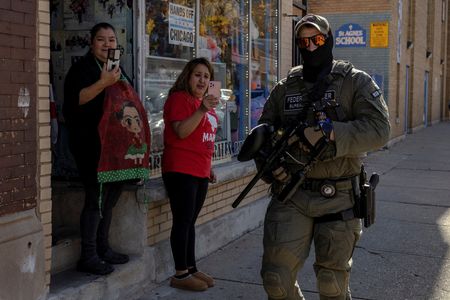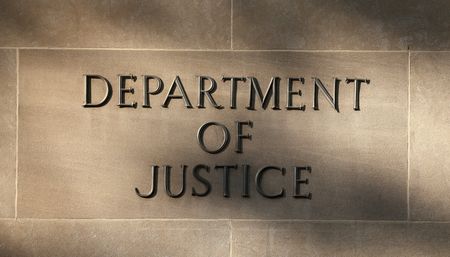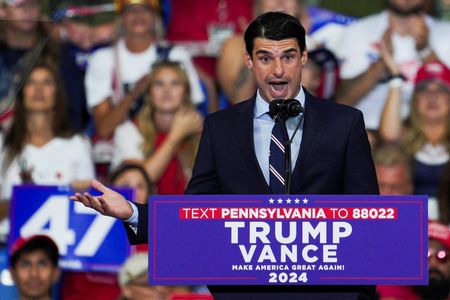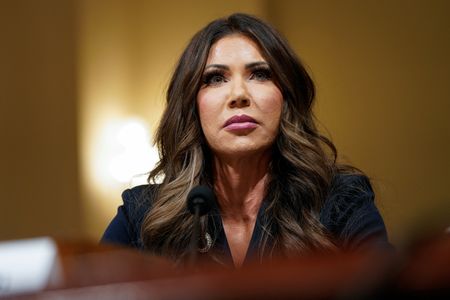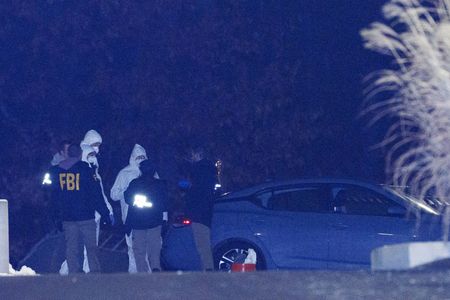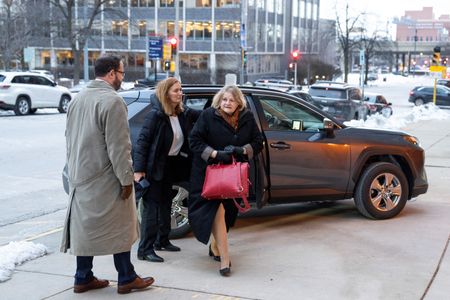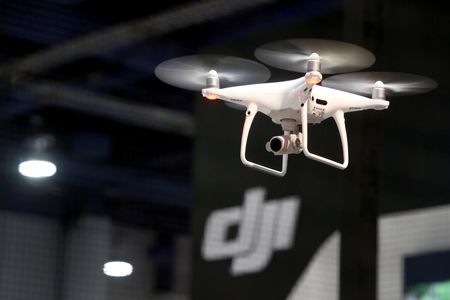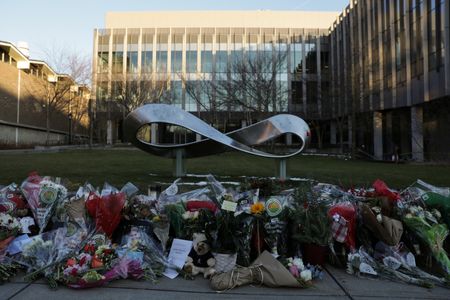By Jack Queen
PHILADELPHIA (Reuters) – A Pennsylvania state judge said on Thursday he would not immediately move forward with a lawsuit that seeks to stop Elon Musk’s $1 million voter giveaway ahead of the Nov.
5 U.S. presidential election.
At a hearing in Pennsylvania, Judge Angelo Foglietta said he would place the lawsuit on hold while a federal court considers whether to take up the case.
Musk’s bid to move the case frees him to continue the giveaway, because the matter likely won’t be resolved until after Tuesday’s election.
The billionaire entrepreneur, who is spending heavily to back Republican Donald Trump, had been ordered to attend the hearing but did not appear.
Philadelphia District Attorney Larry Krasner is seeking to halt the giveaway less than a week before the tightly contested presidential election between Trump and Democrat Kamala Harris.
Krasner, who championed progressive causes when running for district attorney, accuses Tesla CEO Musk and his political action committee America PAC of hatching an “illegal lottery scheme to influence voters.”
Musk has been giving $1 million checks to randomly selected people who sign a petition pledging support for free speech and gun rights.
The offer is limited to registered voters in one of seven states that will likely decide the outcome of the Nov.
5 election – Arizona, Georgia, Michigan, Nevada, North Carolina, Pennsylvania and Wisconsin.
Musk gave away the first $1 million at an Oct. 19 America PAC rally in Harrisburg, Pennsylvania’s state capital.
After the hearing, Musk said “American Justice FTW” in a post on his social media platform X, using the abbreviation for “for the win.”
On Thursday afternoon, Krasner’s office filed an emergency motion to return the case to state court, calling Musk’s manuever a stunt designed to “run the lock until Election Day.”
The federal judge overseeing the case gave Musk’s lawyers until Friday morning to respond.
Krasner’s Oct. 28 lawsuit says the giveaway should be stopped because it amounts to an illegal lottery that violates consumer protection laws by using deceptive language.
According to published reports, Krasner asked the court for added security for the hearing, saying social media users posted an “avalanche” of inflammatory posts, including antisemitic attacks toward him, and posted his home address.
Musk said in a filing that Krasner’s lawsuit raises questions of free-speech rights and election interference that belong in federal court.
Prosecutor John Summers told reporters outside the courtroom that he would seek to have the case returned to state court. “This is a case that involves state law issues,” he said.
Musk’s lawyer Matthew Haverstick accused prosecutors of naming Musk as a defendant to generate a “circus atmosphere” and said he should not be required to appear in court.
“Mr. Musk was named as a defendant as a publicity stunt,” Haverstick said, arguing that America PAC should be the only defendant.
Summers said the owner of the SpaceX rocket company could easily show up if he was inclined to do so.
“He’s not going to get in a rocket ship and take it to Philadelphia – let’s be serious here,” Foglietta said, drawing laughter in the courtroom.
In the lawsuit, Krasner’s office said Musk and America PAC have not published clear rules for the giveaway and has not said how they are protecting voters’ personal information.
He also said people who receive Musk’s money are “not actually chosen at random,” citing two winners who attended two pro-Trump rallies.
The giveaway falls into a gray area of election law, and legal experts are divided about whether Musk could be violating federal laws against paying people to register to vote.
Krasner filed his lawsuit in a state court and he does not allege the giveaway violates federal law.
The U.S.
Department of Justice warned America PAC the giveaway could violate federal law, according to media reports, but federal prosecutors have not taken any public action.
Musk has so far given nearly $120 million to America PAC, according to federal disclosures, and the group has taken on much of the door-knocking work of ensuring Trump’s supporters turn out to vote.
The entrepreneur became an outspoken Trump supporter this year and has promoted the former president on his X social media platform.
Researchers said on Wednesday that X has been ineffective in countering a surge in election misinformation.
Trump in turn has said that if elected, he would appoint Musk to head a government efficiency commission.
(Reporting by Jack Queen; writing by Andy Sullivan; Editing by Tom Hogue, Lisa Shumaker and Alistair Bell)


